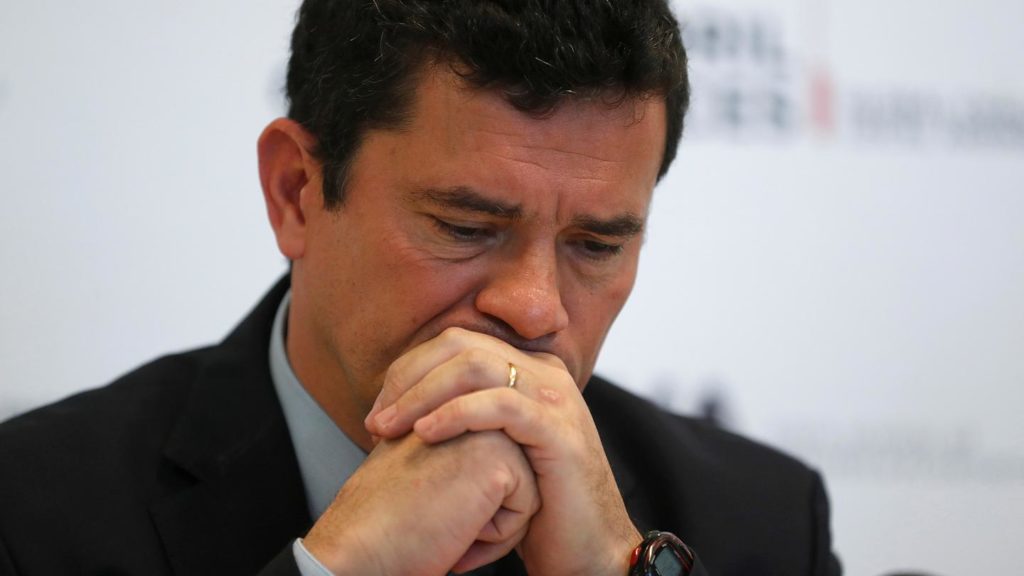Column, by Michael Royster
RIBEIRÃO PRETO, BRAZIL – Twice last year there were times when the imminent passing of Lava-Jato into history, accompanied by cheering from cohorts of corrupt scoundrels, seemed ineluctable. Neither occasion, however, proved sufficient to overcome the determination of the investigators and of “crusading” Judge Sergio Moro.
After the election of President Jair Bolsonaro and his appointment of Moro as a glorified “Super-Minister” of Justice and Public Safety, not to mention his promise of still greater glory as a Justice on Brazil’s Supreme Court (STF), Lava-Jato seemed to grow in strength.

Zealous public ministry prosecutors vied with zealous federal police detectives, to see who could bring more corrupt politicians to justice, whether by plea bargain or by prosecution. Former President Lula remained imprisoned, hence ineligible for public office, notwithstanding diligent attempts to free him by his attorneys and political supporters.
True, there had been occasional discomforting hiccups along the way. Judge Moro knowingly divulged an illegally obtained recording of a conversation between then-President Dilma and Lula, when she offered him a “get-out-of-jail-free” ministerial position. Later, Judge Moro flatly refused to obey an order from a judge at the 4th Federal Appeals Court in Curitiba, who had ordered Lula released.
For these irregular actions, Judge Moro received a figurative slap on the wrists from his judicial superiors, and loud cheers from public opinion—except from Lula’s claque of true believers, who complained that Moro’s actions proved him to be part and parcel of a grand conspiracy to prevent Lula and leftist parties from regaining power.
This conspiracy allegedly arose in the “Republic of Curitiba”, as leftists referred to the Public Prosecutor’s Office in that city. Back in 2016, lead prosecutor Deltan Dallagnlol had explained, on TV Globo, a PowerPoint presentation showing a nationwide systemic corruption scheme centered around Lula. “We don’t have to prove it, it just convinces us,” he said at the time.
Enter The Intercept Brazil, a site dedicated to publishing anything it believes the public needs to read, no matter where it came from or how it was obtained.
In a series of reports published Sunday, June 9th, the site broadcast material that seemingly shows Judge Moro actively cooperating with Prosecutor Dallagnol in numerous efforts to ensure Lula was convicted and remained in jail rather than run for election.
In short, “crusading” Judge Moro, as many have described him, may have allowed his crusading spirit to overpower his legal duty to remain impartial when deciding cases when he actively cooperated with prosecutors in the framing and timing of criminal charges and presentation of evidence.
Judges cannot do that. They simply cannot assist the prosecution or the defense in criminal cases–to do so compromises their ability to judge a case impartially.
To be sure, judges in Brazil are not prohibited from talking or corresponding with prosecutors. In fact, under Brazilian law, lawyers have a statutory right to talk to judges about their cases, even without opposing counsel being present. [Under US law, such one-sided talks would be grounds for disbarment of the lawyer and impeachment of the judge.]
Talk is cheap, says the proverb, but in Judge Moro’s case, it will cost him dearly, if the Intercept’s exposé is shown to be true. First, Moro’s partiality towards convicting Lula may cause the STF to vacate the trial court decision, thus freeing Lula. Second, his coveted seat on the STF may never happen, as Justices must, at least in theory, remain impartial.
For, as was the proverbial case of Caesar’s wife, people in certain positions must not only be above suspicion, they must also seem to be above suspicion. Judge Moro and Prosecutor Dallagnol no longer fall into the “above suspicion” category.
Worse than that, however, is the damage to Lava-Jato, or at very least to all convictions rendered in the Republic of Curitiba. Every defense lawyer, whose clients were prosecuted by Dallagnol and convicted by Judge Moro, will now seek to vacate those decisions—and they may well succeed.
At the level of the STF, the controversial question of imprisonment after a conviction has been affirmed will once again come to the fore, as Lula’s lawyers seek to have him released. Their argument will be that Moro’s initial sentence was improper and that its subsequent confirmation by two appellate courts does not remove the original stain.
As for Lava-Jato as a whole, there is surely a feeling among the “300 Scoundrels” in Congress facing ignominy or criminal charges, that now is the time for them to strike, while the rumor is hot, in order to protect their future.
They would love to pass legislation severely curtailing the investigative and deal-making powers of the Public Ministry, meting out punishment to zealous prosecutors (and judges) who overstep the bounds of propriety, while hoping they are not caught in the net.

